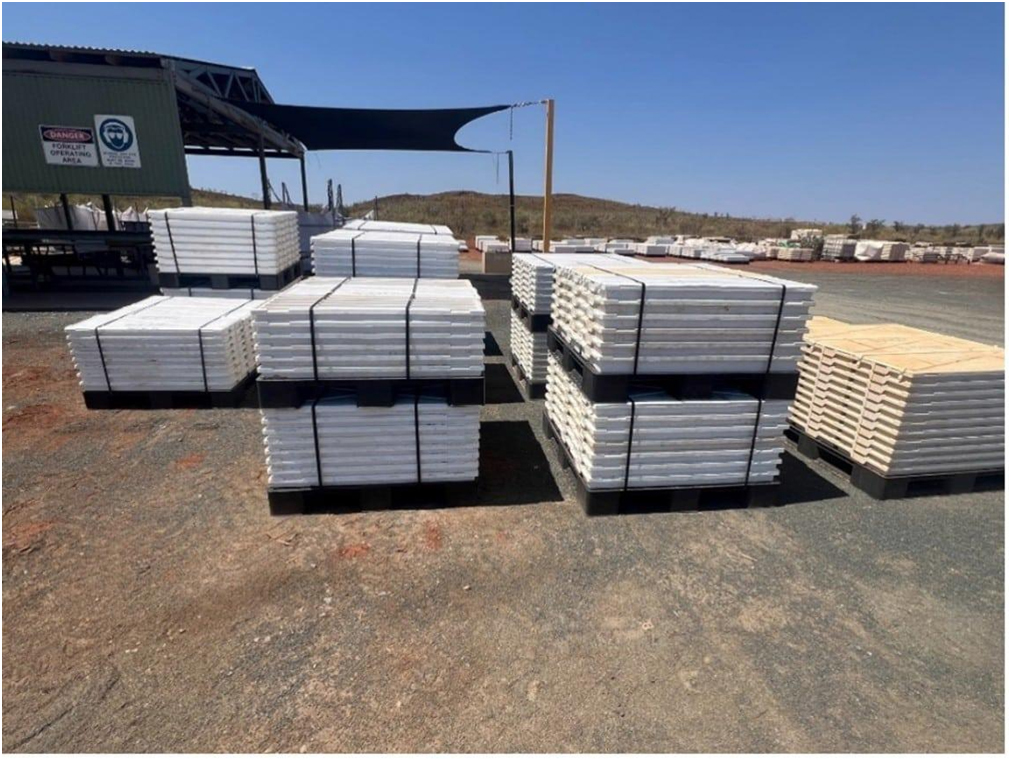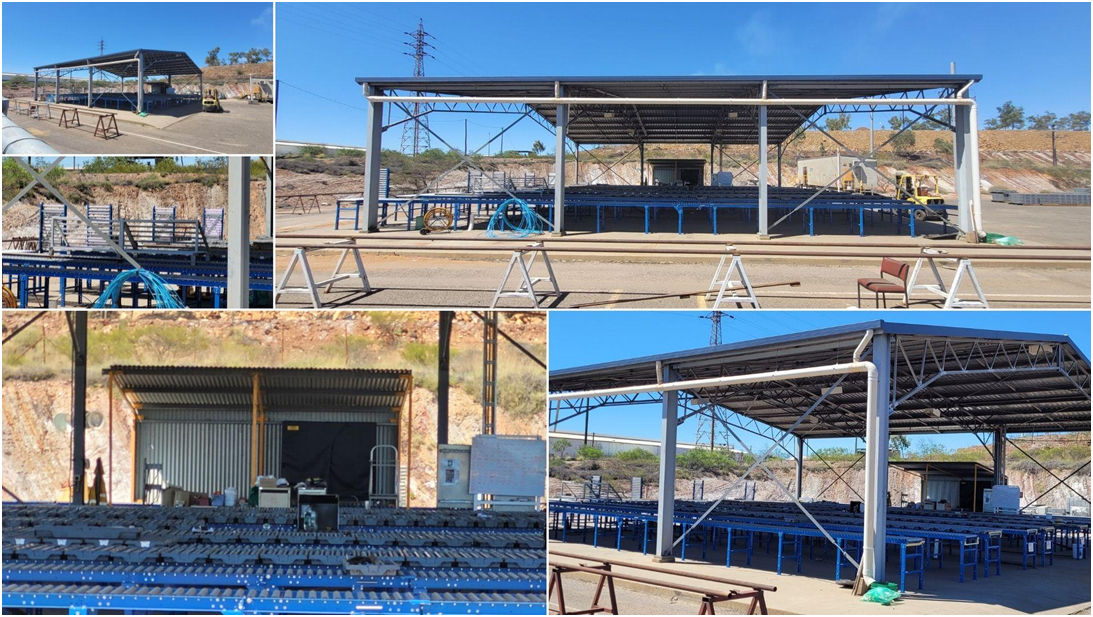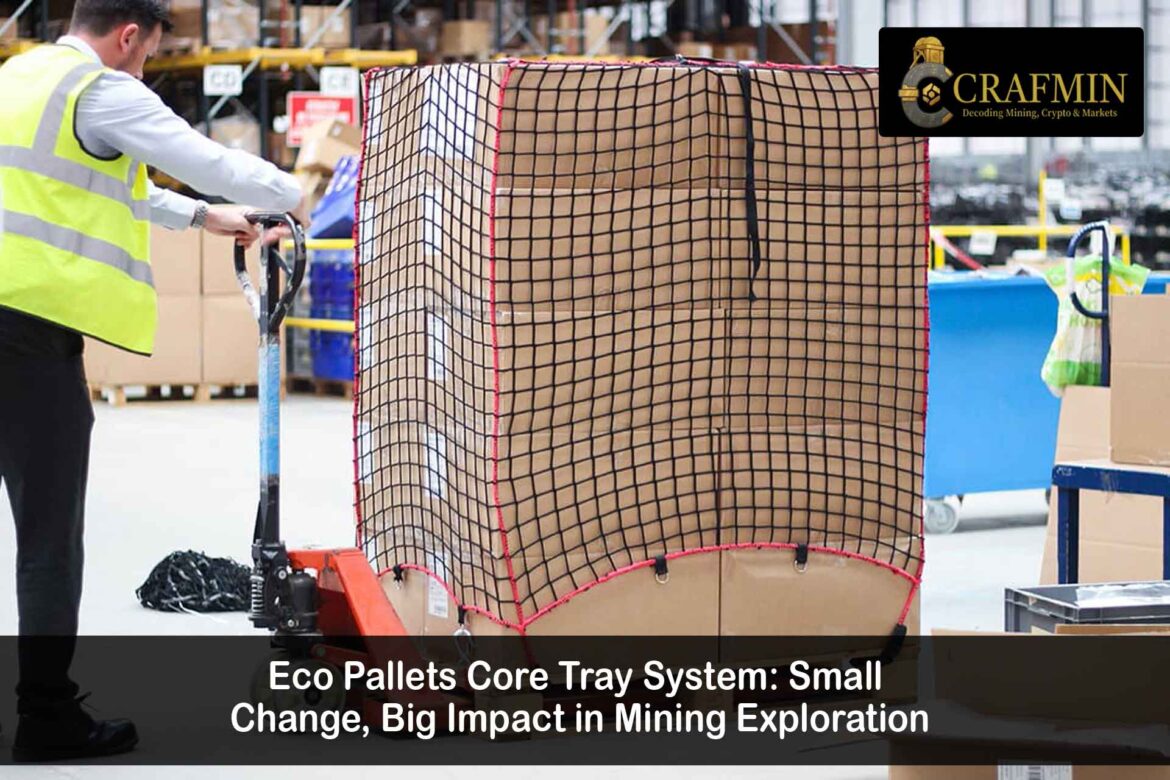In exploration, big discoveries often hinge on small details. One such detail — how core samples are handled and stored — is drawing new attention as drilling intensifies across Australia’s mining regions. The Eco Pallets core tray system, now in wider use at remote drill sites, reflects a growing push to modernise the most overlooked parts of the exploration process.
The Value of Core
For geologists, diamond drilling core isn’t just rock. It’s the data source that guides millions of dollars in decisions. From first-pass exploration to detailed resource modelling, core records structure, mineralisation, and key geological features. Losing core, or damaging it in handling, can distort models, slow approvals, and drive up costs.
This is where core trays matter. A damaged tray can mean lost or contaminated samples. Poor stacking can lead to injury or loss in transit. It doesn’t grab headlines, but it’s essential to getting exploration right.
Why Eco Pallets’ Solution Stands Out
Eco Pallets offers a tray system designed to address these quiet risks. The trays are made from high-strength plastic that resists cracking, splintering, or warping. Unlike timber trays, which are common at many sites, the plastic design stays stable in wet conditions and under heavy use.
But it’s the system’s integration with pallet transport that adds another layer. By aligning with standard pallet sizes, the trays can be moved securely, stacked efficiently, and tied into site logistics workflows. This isn’t just about moving rock — it’s about keeping valuable data intact through every stage.
Handling Safety Often Overlooked
Sample handling injuries don’t make headlines. Yet, they are a known issue at exploration sites. Traditional core trays, often heavy and awkward, contribute to back strain, slips, and manual handling risks.
Field supervisors who’ve switched to Eco Pallets report fewer incidents related to lifting and moving core. The reduced weight and improved grip points on the trays make a difference. With the mining sector under increasing pressure to show genuine improvements in safety performance, small gains like these matter.
Logistics That Work
Moving core isn’t easy. The Eco Pallets system addresses challenges that many outside exploration don’t see. Moving geological samples from drill sites is rarely straightforward. Crews need trays that can hold together under rough conditions, whether stacked on a flatbed or tied down for a long haul over dirt roads. Eco Pallets designed its trays to stay secure during transport, reducing the risks of core shifting or samples getting mixed up — both problems that can affect test results later on.
For remote operations, where labs and ports might be hundreds of kilometres away, small improvements like this can mean fewer headaches and less chance of costly rework if samples are damaged or go missing. Lost samples often mean re-drilling — an expense few programs can afford.
 Eco Pallets trays loaded on a truck at a remote drill site. Credit: Eco Pallets
Eco Pallets trays loaded on a truck at a remote drill site. Credit: Eco Pallets
Environmental Angle
There’s also a longer-term sustainability consideration. Timber trays often break or rot within a few programs. Plastic trays, while needing proper end-of-life management, last far longer. This reduces waste on-site and limits the need for constant replacements — a small but meaningful contribution as miners look to shrink their operational footprints.
A Growing Shift
Eco Pallets trays are now in use not only in large-scale exploration but also in smaller programs where budget control is key. Contractors point to the trays’ role in keeping operations tidier, safer, and easier to manage — particularly during multi-rig campaigns where core handling volumes spike.
One WA exploration manager said:
“It’s not something investors see on a slide deck. But these small changes are what make programs run smoother and safer.”
A Broader Lesson for Mining
The rise of systems like Eco Pallets’ core trays reflects a wider truth about mining innovation. Big headlines often go to new processing technologies or automation. But the steady gains — the ones that improve safety, data integrity, and logistics — often come from small, practical changes on the ground.
In exploration, where success depends on getting dozens of moving parts right at once, these changes can have an outsized impact.
Also Read: IGO’s New Leadership: Why Ivan Vella and Suzy Retallack Signal More Than Just a Change at the Top

Core shed using Eco Pallets trays, showing stacked and labeled core ready for logging.. Credit: Dynamics G-Ex
The Step Ahead
Looking ahead, exploration teams are working in tougher locations than before. Whether it’s drilling deeper or setting up in hard-to-reach areas, they face new challenges in keeping core safe. That makes dependable tray systems more important than ever — not just as equipment, but as part of how the job gets done right the first time. Eco Pallets’ trays aren’t flashy, but they’re part of a quiet evolution in how exploration programs protect their most valuable resource: their data.
For now, the trays are proving their worth in the field. And that, for drill crews and geologists alike, is what matters most.

